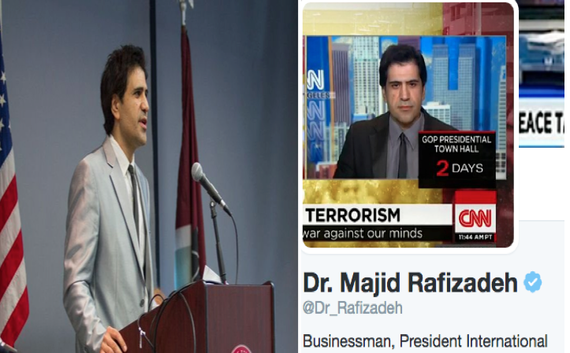Hoping that the Iranian government would suddenly become a constructive, responsible, and rational member of the international community on its own is unrealistic.
Fundamental changes from within the Iranian government, that would alter the revolutionary principles, are inconceivable. This is because the ruling clerics' theocratic constitution has confined Iran with such unbending legal and social restrictions that change is made impossible, and the political establishment of the ruling clerics is becoming more and more incompatible with the standards, rules and international laws of the international community.
In addition, according to the Islamic Republic's constitution, people do not have the right to change the fundamentals of the constitution; only the Supreme Leader has such a right.Many politicians, policy analysts, and scholars have been arguing for a long time, since 1979, that the Islamic Republic of Iran will change for the better honoring its own citizens and the rules of the international community. However, history has forcefully shown that their arguments have repeatedly failed.
There exist ample reasons why moderating the Iranian government and a change in the Iranian government from a Shiite theocracy toward a democratic system of governance would be conducive and beneficial not only to the Iranian people, but also for the regional and global stability, peace and security.Instead of delving into these reasons, which are evident and explicit, the major question to address would be: what are some effective and non-violent approaches to channel such democratic reform in Iran?
Some critical approaches include standing with the Iranian youth, pressure from international community, focusing on Iran's human rights, violations of international laws and suppression of religious and ethnic minorities as well as human rights groups, providing Iran's opposition with social media and technologic assistances, and supporting oppositional groups.
_____________________
For more details and nuances, you can read full version on Here.
You can sign up for Dr. Rafizadeh's newsletter for the latest news and analyses on Here.
Harvard-educated, Dr. Majid Rafizadeh is an American political scientist, president of the International American Council on the Middle East, business advisor, and best-selling author. He serves on the advisory board of Harvard International Review. Dr. Rafizadeh is frequently invited to brief governmental and non-governmental organizations as well as speak, as a featured speaker, at security, business, diplomatic, and social events. He has been recipient of several fellowships and scholarships including from Oxford University, Annenberg, University of California Santa Barbara, Fulbright program, to name few He is regularly quoted and invited to speak on national and international outlets including CNN, BBC World TV and Radio, ABC, Aljazeera English, Fox News, CTV, RT, CCTV America, Skynews, CTV, and France 24 International, to name a few. . He analyses have appeared on academic and non-academic publications including New York Times International, Los Angeles Times, CNN, Farred zakaria GPS, The Atlantic, Foreign Policy, The Nation, The National. Aljazeera, The Daily Beast, The Nation, Jerusalem Post, The Economic Times, USA Today Yale Journal of International Affairs, Georgetown Journal of International Affairs, and Harvard International Review. He is a board member of several significant and influential international and governmental institutions, and he is native speaker of couple of languages including Persian, English, and Arabic. He also speaks Dari, and can converse in French, Hebrew. More at Harvard.
You can also order his books on HERE.
You can learn more about Dr. Rafizadeh on HERE.
You can contact him at Dr.rafizadeh@post.harvard.edu or follow him at @Dr_Rafizadeh.

